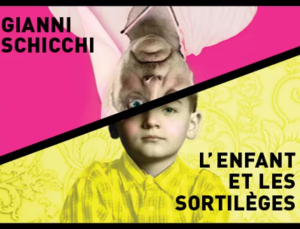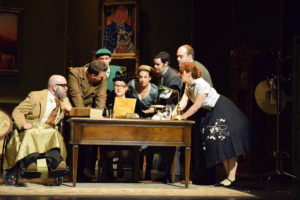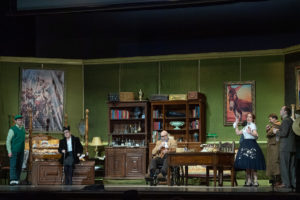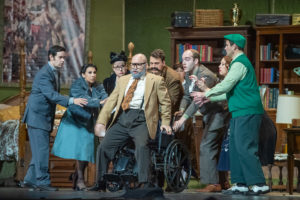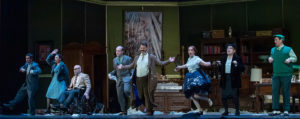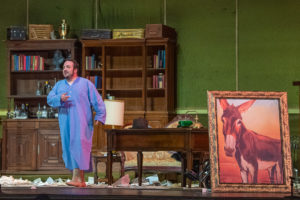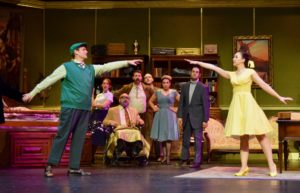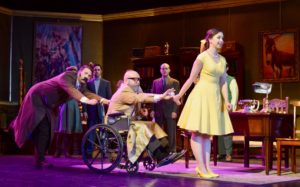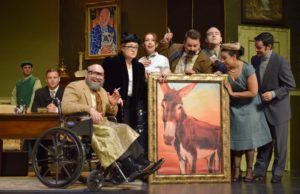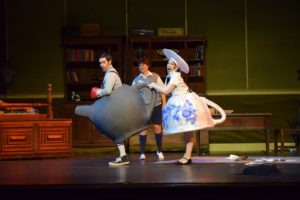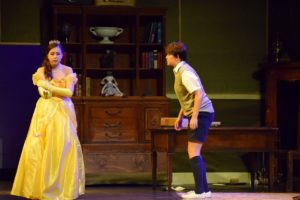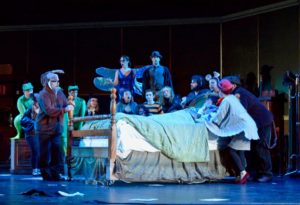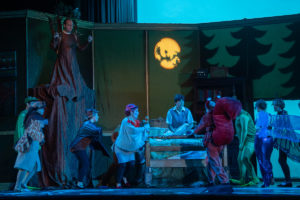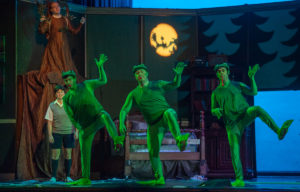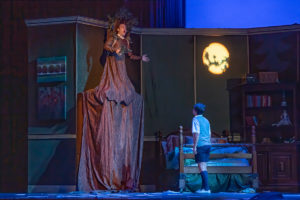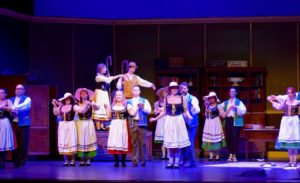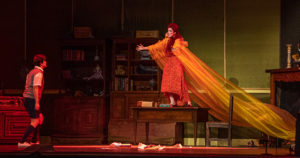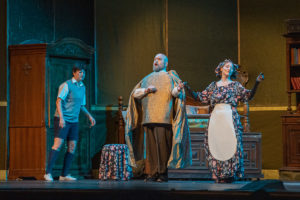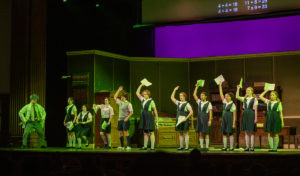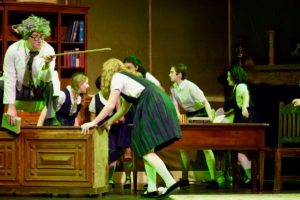A DAZZLING DOUBLE BILL
The laudable Pacific Opera Project gave us two sparkling gems of operatic joy this week: a double bill of Puccini’s Gianni Schicchi and Ravel’s L’enfant et les Sortilèges.
Director Josh Shaw has updated both operas to the mid-1950s, a period which suits both pieces well — old enough for temporal distance to lend enchantment, yet close enough to the present for us to relate to the humor in each.
Quite apart from the glory of Puccini’s music, Gianni Schicchi is a masterpiece of comic brevity, and upon its New York premiere in 1918, most critics deemed it the best of the three operas of Il Trittico. In the frenzy of avarice which constitutes most of the action, the mid point of the opera is momentarily stilled by one of Puccini’s most loved arias, “O mio babbino caro”, here, beautifully sung with effective simplicity by Tiffany Ho; though to single out one singer in this ensemble is unfair — all in this terrific company performed splendidly. The POP company make us happily aware that the days of opera singers renowned for voice alone are passing. We now demand not only that singers reach the high notes, but that they resemble the roles they play physically and have the acting chops to give us three dimensional characters. Certainly this was evident in E. Scott Levin’s cheerily devious Gianni Schicchi.
The versatility of the ensemble was proven beyond doubt as the mean-spirited Donati family were transformed into the fantastic creatures in Ravel’s magical opera L’enfant et les Sortilèges, aided by designer Maggie Green’s whimsical costumes. I admit to a lifelong passion for Ravel’s music, and to see L’enfant so wittily realized made me smile from beginning to wistful end.
Colette wrote her text for L’enfant in 1916, choosing Ravel to set it to music. World War I intervened, and the opera was not completed until 1925. “Sortilèges” is a relatively untranslatable word. It can mean “enchantments” or “spells”, and is sometimes interpreted to mean the child’s toys. But the toys are only part of the destructive child’s world. In a fit of temperament, he breaks a clock, a Chinese teacup, injures a bird, a squirrel, the cat; he’s pinned a dragonfly to a board, killed a bat, and threatens frogs with imprisonment in cages. All these — animal, vegetable and mineral — rebel and demand freedom from the child’s tyranny. The demented grandfather clock repeatedly strikes himself with his broken pendulum “ding ding ding”, the fire threatens him with burning retaliation, the cat hisses and scratches, the broken teapot threatens to box the kid, even the shepherds and shepherdesses in the wallpaper admonish him.
Ultimately, the boy finds compassion for the creatures he’s injured and binds the squirrel’s injured paw. The creatures relent and the child, finally safe in his bed, calls for his mother. The gentle, almost heartbreaking cry of “maman” at the opera finale leads us to believe the child has learnt a lesson and will mend his ways.
Kimberly Sogioka as l’enfant was solidly in charge vocally and played the temperamental child with appropriate petulance, relenting finally into meek submission. The characters were realized sympathetically: the Princess, the Shepherd, the Nightingale — and wittily: the frogs, the cats, the boxing teapot (“how’s your mug?”) and the broken Chinese teacup whose nonsense “oriental” lyric (“cascara, harakiri, Sessue Hayakawa”) always broadens the smile.
The singing was uniformly powerful and persuasive, never neglecting the humor of the text in either opera. If I have a carp of any kind, it’s that the venue — a vast, cold hall at Occidental College — is more suited to dispensing diplomas than opera. The fine twenty-six member orchestra, under Joshua Horsch’s direction, was tucked in behind the set and sometimes muffled. But that qualification seems minor given a program of joyous music, splendidly executed in every department.
photos by Martha Benedict
Gianni Schicchi & L’Enfant et les Sortilèges
Pacific Opera Project (POP)
Thorne Hall, Occidental College
1600 Campus Road in Los Angeles
in Italian and French with projected supertitles
ends on February 2, 2020
for tickets, call 323.739.6122 or visit POP
